When it comes to global logistics and the shipping industry, understanding the role of an NVOCC, or Non-Vessel Operating Common Carrier, is crucial. An NVOCC is an entity that doesn’t own or operate ships but plays a significant role in the transportation of goods. Acting as an intermediary between the shipper and the vessel operator, an NVOCC issues its own bills of lading, consolidates shipments, and provides a host of logistical services. This unique positioning allows NVOCCs to offer flexible and cost-effective solutions, making them indispensable in global trade.
Throughout this article, you’ll discover the various roles and functions of NVOCCs, how they differ from freight forwarders, the benefits they bring to the table, and the challenges they face. By the end, you’ll have a comprehensive understanding of why NVOCCs are a cornerstone in the logistics and shipping industry.
NVOCC vs. Freight Forwarder: Key Differences
Understanding the distinctions between NVOCCs (Non Vessel Operating Common Carriers) and freight forwarders is key to grasping their unique contributions to the logistics and shipping industry. Both play crucial roles, yet their responsibilities, legal standings, and operational methods vary significantly.,
1. Operational Roles and Responsibilities:
NVOCCs act as carriers, issuing their own bills of lading and assuming responsibility for the shipment from origin to destination. They consolidate shipments, book cargo space, and manage logistics services.
Freight forwarders, on the other hand, are intermediaries who organize shipments for individuals or corporations. They focus on arranging transportation, handling documentation, and ensuring the smooth transit of goods without issuing their own bills of lading.
2. Issuance of House Bill of Lading by NVOCCs and Its Significance
One key aspect that sets NVOCCs apart is their ability to issue a House Bill of Lading (HBL). This document signifies that the NVOCC has accepted the goods for transport, establishing them as a carrier in the eyes of the shipper. The HBL is crucial as it provides a legal contract of carriage, detailing the terms under which the cargo is being transported.
Freight forwarders, conversely, do not issue HBLs but may handle the documentation process and provide a bill of lading from the carrier they contract.
3. Pricing Structures and Contractual Capabilities
NVOCCs typically offer more flexible pricing structures due to their ability to consolidate multiple shipments into one, often securing better rates from vessel operators. They can negotiate contracts with shipping lines, providing shippers with competitive pricing.
Freight forwarders, while also negotiating rates, often work on a commission basis and may not have the same leverage in pricing as NVOCCs. Their focus is more on service fees for organizing and managing shipments.
4. Legal Responsibilities and Licensing Requirements Set by Regulatory Bodies:
NVOCCs are subject to strict regulatory oversight and must obtain licenses from bodies such as the Federal Maritime Commission (FMC) in the United States. They are considered carriers, meaning they have greater legal responsibilities for the cargo they handle.
Freight forwarders, while also regulated, have different licensing requirements and are not held to the same carrier standards. Their legal responsibilities focus more on ensuring compliance with shipping regulations and managing documentation.
Understanding these differences is essential for anyone involved in global logistics, as choosing the right partner—NVOCC or freight forwarder—can significantly impact the efficiency and cost-effectiveness of your shipping operations.
Must Read: How To Choose The Best Freight Forwarder For FCL DDP Shipments?
The Role and Functions of NVOCCs
Grasping the role and functions of NVOCCs (Non Vessel Operating Common Carriers) provides valuable insight into how they enhance the efficiency of global shipping. Their services cater to various needs, making them a pivotal part of the logistics chain. Let’s dive into some key aspects of their operations.
1. Procurement of Space on Vessels and Reselling to Smaller Shippers:
Non Vessel Operating Common Carriers (NVOCC) buys large blocks of space from vessel operating carriers and then resells this space to smaller shippers. This practice allows smaller shippers to access the benefits of bulk shipping rates without needing to fill an entire container themselves.
As a result, shippers can send smaller quantities of goods more frequently, improving their supply chain flexibility and responsiveness.
2. Container Services Including Consolidation and Deconsolidation:
NVOCCs excel in providing comprehensive container services. They consolidate smaller shipments from multiple shippers into a single container, optimizing space and reducing costs. This consolidation means more efficient use of shipping containers and lower expenses for individual shippers.
Upon arrival at the destination port, NVOCCs deconsolidate the containers, separating the goods and ensuring each shipment reaches its final destination. This service is particularly beneficial for shippers with less-than-container-load (LCL) shipments, offering them an economical and efficient shipping solution.
3. Documentation Services:
The paperwork involved in international shipping can be overwhelming, but NVOCCs simplify this process by handling documentation services for their clients.
From bills of lading to customs declarations, NVOCCs manage all necessary paperwork, ensuring compliance with international regulations and reducing the administrative burden on shippers.
4. Contractual Agreements with Vessel Operating Carriers:
NVOCCs establish contractual agreements with vessel operating carriers, securing guaranteed space and service levels for their clients. These contracts ensure that shippers have access to reliable and consistent shipping options, even during peak seasons when space might be limited.
By leveraging their relationships with carriers, NVOCCs can offer competitive rates and dependable service, providing shippers with peace of mind and confidence in their supply chain operations.
Benefits of Using an NVOCC for Global Shipping
Using an NVOCC (Non-Vessel Operating Common Carrier) can be highly beneficial for small to medium-sized businesses engaging in global shipping. Here are some of the key advantages:
- Accessibility to Global Trade Channels: NVOCCs provide small to medium-sized businesses with access to global trade channels, which might be difficult to navigate on their own. This allows them to compete with larger companies in the international market.
- Better Rates through Bulk Transactions: NVOCCs ( Non Vessel Operating Common Carriers) have contracts with a diverse mix of steamship carriers, enabling them to negotiate better rates due to bulk transactions. This results in cost savings for small to medium-sized businesses.
- Tailored Services and Simplified Logistics Solutions: NVOCCs offer customized services and simplified logistics solutions, catering to the unique requirements of small to medium-sized businesses. They manage the entire process from origin to final delivery, ensuring a smooth transition through customs, ground transportation, and warehousing.
- Efficient Connection of Local and International Logistics Networks: NVOCCs efficiently connect local and international logistics networks, facilitating a seamless flow of goods across the globe. This enables small to medium-sized businesses to expand their reach and tap into new markets.
Role of the Shipping Act of 1984 in Regulating NVOCC Operations
Prior to the Shipping Act of 1984, the shipping industry was heavily regulated, and NVOCCs were not explicitly recognized as distinct entities. The Act aimed to promote competition, reduce regulatory burdens, and increase efficiency in the shipping industry.
Here are some key aspects of the Act and its impact on NVOCCs:
- Antitrust Immunity: The Act grants limited antitrust immunity to ocean carriers, including NVOCCs, allowing them to discuss and agree on certain aspects of their operations, such as pricing and capacity. This immunity is designed to promote stability and efficiency in the shipping industry.
- Service Contracts: The Act permits NVOCCs to enter into confidential service contracts with shippers. These contracts can include tailored rates and service terms, which offer flexibility and competitive advantages to both parties. The Federal Maritime Commission (FMC) oversees the filing and confidentiality of these contracts.
- Regulatory Oversight: The FMC is the major regulatory body that administers the provisions of the Shipping Act of 1984. The FMC oversees NVOCC licensing, tariff filings, and service contracts and ensures that NVOCCs operate within the legal framework established by the Act.
- Prohibited Practices: The Act outlines various prohibited practices for NVOCCs, such as unfair or discriminatory practices, unreasonable refusals to deal with, and false billing. Violations of these regulations may result in FMC-imposed penalties and corrective actions.
- Dispute Resolution: The Act provides mechanisms for resolving disputes between shippers, NVOCCs, and other stakeholders. This includes formal complaint procedures and adjudication by the FMC, ensuring that conflicts are addressed in a fair and orderly manner.
- Promoting Competition: One of the Act’s objectives is to promote competition in the ocean shipping industry. By regulating NVOCC operations and preventing anti-competitive practices, the Act aims to foster a competitive environment that benefits shippers and consumers through better services and pricing.
Amendments and Updates: The Shipping Act of 1984 has undergone several amendments and updates, including the Ocean Shipping Reform Act of 1998 and the Federal Maritime Commission Authorization Act of 2017. These updates have further refined the regulatory framework for NVOCCs, addressing issues such as rate transparency, demurrage and detention charges, and carrier-NVOCC agreements.
In conclusion, the Shipping Act of 1984 played a crucial role in regulating NVOCC operations, promoting competition, transparency, and consumer protection. The Act’s provisions have had a lasting impact on the NVOCC industry, shaping its growth and development over the years.
How to Choose Between an NVOCC and a Freight Forwarder
Choosing the right partner for your shipping needs can significantly impact your business’s efficiency and cost-effectiveness. Non-Vessel Operating Common Carriers (NVOCCs) and Freight Forwarders are two popular options, each with distinct advantages. Understanding how to evaluate your specific shipping requirements and the services offered by each can help you make an informed decision.
1. Evaluating Specific Shipping Needs and Service Offerings
The first step in choosing between an NVOCC and a Freight Forwarder is to assess your specific shipping needs. Consider the following:
- Volume of Shipments: High-volume shipments might benefit more from an NVOCC due to their bulk negotiating power with shipping lines.
- Type of Cargo: Specialized cargo may require specific handling and expertise that one provider can offer better than the other.
- Geographic Reach: Ensure the provider has strong networks and experience in your target shipping regions.
- Logistics Complexity: Assess whether your shipments need complex logistics solutions, such as multiple modes of transport or intricate customs procedures.
NVOCCs typically offer comprehensive end-to-end services, including ocean transport, documentation, and customs clearance. Freight Forwarders, such as Intoglo, often provide more flexible and tailored logistics solutions, including FCL ocean freight, 3PL warehousing across the USA, and Transloading & Palletization, ensuring your goods are handled with utmost care and efficiency.
2. The Advantage of Working with an NVOCC for Direct Cost Benefits
One of the key advantages of working with an NVOCC is the potential for direct cost benefits. NVOCCs can negotiate better rates with shipping lines due to their ability to consolidate cargo from multiple clients, resulting in bulk transactions. This often translates to lower shipping costs for individual shippers.
Additionally, NVOCCs can provide fixed rates for extended periods, offering more predictable shipping expenses. This stability can be favorable for businesses looking to manage their logistics budgets more effectively. If direct cost savings and predictable rates are crucial for your business, an NVOCC might be the preferable choice.
3. Comprehensive Service Overview for Informed Decision-Making
For an informed decision, it’s essential to have a complete understanding of the services offered by both NVOCCs and Freight Forwarders. Here’s a quick comparison:
- NVOCCs:
- Direct contracts with shipping lines
- Consolidation of cargo for bulk rate negotiations
- Fixed shipping rates and schedules
- Full-service logistics, including customs clearance and documentation
- Freight Forwarders:
- Flexible and tailored logistics solutions
- Access to multiple modes of transport
- Expertise in handling specialized cargo
- Additional services such as warehousing, trucking, custom clearance, and distribution.
Intoglo, as a Freight Forwarder, provides exceptional FCL door to door shipment services, which can be particularly beneficial for businesses needing reliable and efficient transportation for large volumes of cargo. Their expertise in handling FCL shipments ensures your goods are transported securely and cost-effectively.
Conclusion
Understanding the unique functions and advantages of NVOCCs, such as their ability to negotiate bulk rates and provide comprehensive logistics services, is crucial for businesses aiming to optimize their logistics.
Furthermore, choosing between an NVOCC and a Freight Forwarder depends on your specific shipping requirements, cost considerations, and the range of services needed. By evaluating your shipping needs, understanding the direct cost benefits of NVOCCs, and conducting a comprehensive service overview, you can make an informed decision that best supports your business’s logistics strategy.
Consider a Freight Forwarder like Intoglo for personalized, flexible, and efficient FCL shipment services. The team concentrates on leveraging AI-powered tracking modules for real-time shipment updates, ensuring shippers’ peace of mind. Intoglo can be a great choice because there is no middleman involved, resulting in quick delivery of shipments.


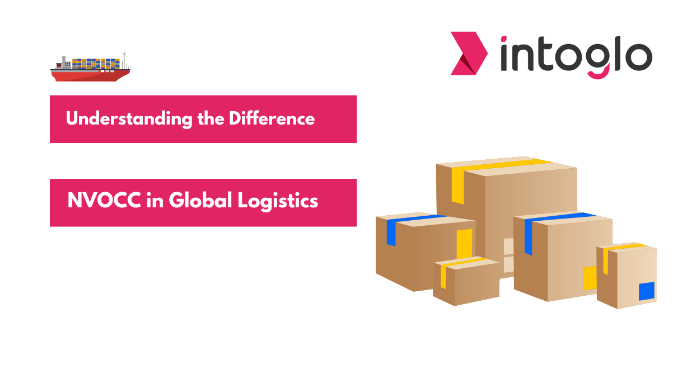

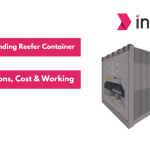
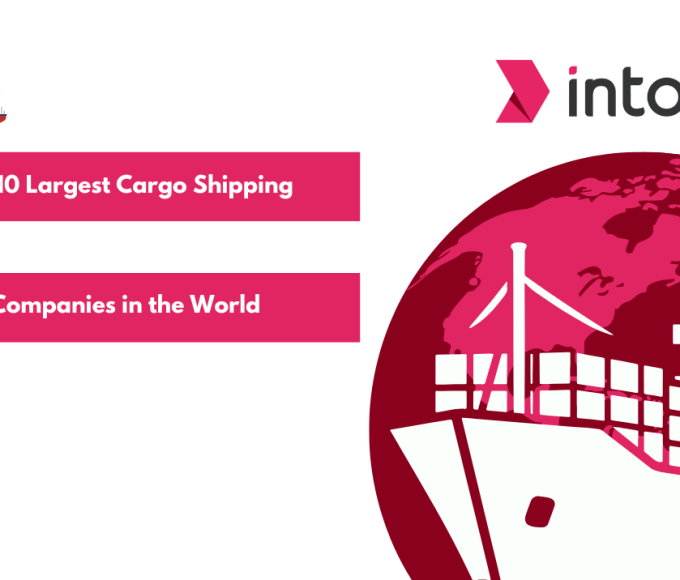
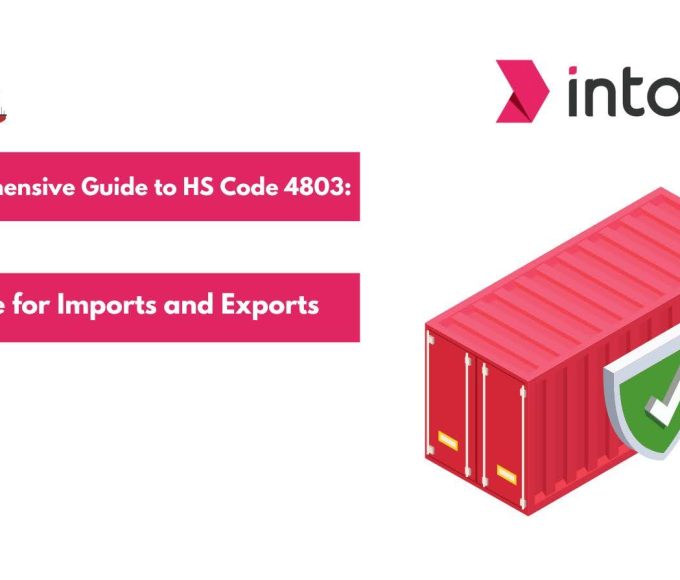
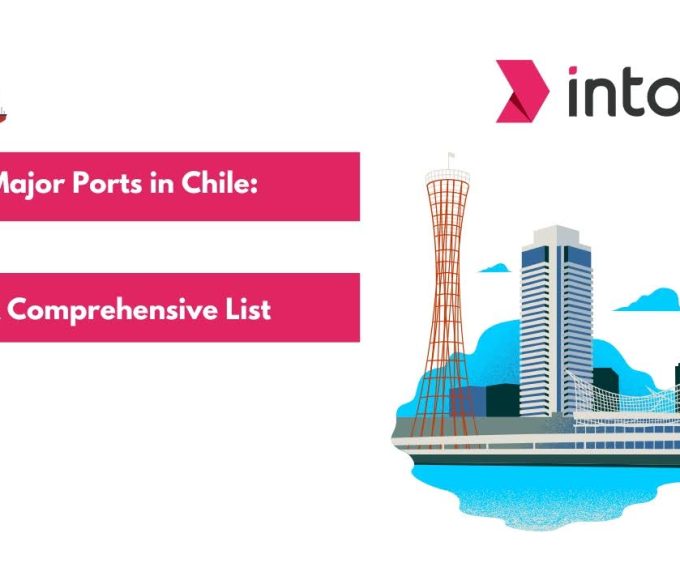
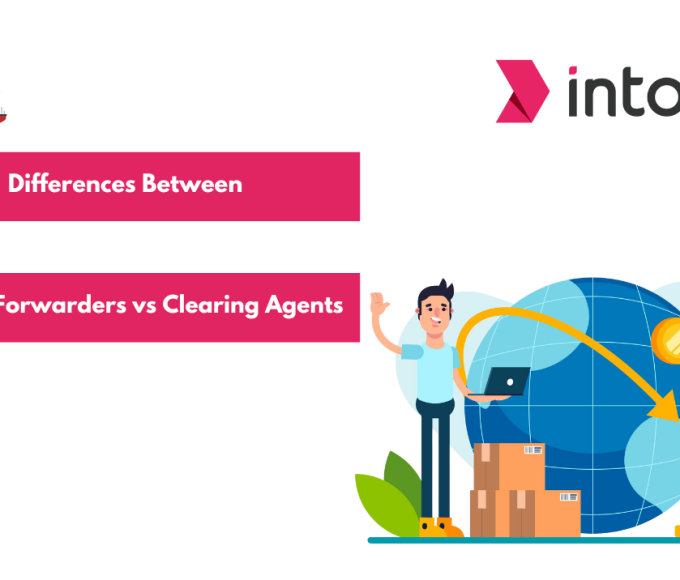
Leave a comment